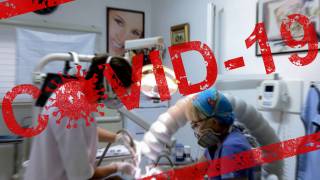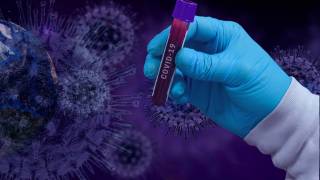CDC Clarifies COVID-19 Antibody Testing Specificity

During the current COVID-19 pandemic, maximizing lab test specificity is significant, says the US Centers for Disease Control and Prevention (CDC) in its 'Interim Guidelines for COVID-19 Antibody Testing.'
On May 23, 2020, the CDC said 'positive predictive value in a serologic algorithm is preferred in most instances since the overall prevalence of SARS-CoV-2 antibodies is likely low in most states, except New York.
For example, in a local population where the coronavirus prevalence is 5%, a test with 90% sensitivity and 95% specificity will yield a positive predictive value of 49%.
In other words, less than half of those testing positive will indeed have antibodies.
Alternatively, the CDC says the same test in a population with an antibody prevalence exceeding 52% will yield a positive predictive greater than 95%, meaning that less than one in 20 people testing positive will have a false-positive test result.
The CDC offers three strategies that can be used to improve positive predictive value: Choosing a test with very high specificity, perhaps 99.5% or greater, will yield a high positive predictive value in populations tested with prevalence >5%.
Another strategy is to focus testing on persons with a high pre-test probability of having SARS-CoV-2 antibodies, such as persons with a history of COVID-19 like illness.
A third approach is to employ an orthogonal testing algorithm in which persons who initially test positive are tested with a second test. Effective orthogonal algorithms are generally based on testing a patient sample with two tests, each with unique design characteristics.
Additionally, test algorithms can maximize overall specificity while retaining maximum sensitivity.
For example, in the example above, with a population prevalence of 5%, a positive predictive value of 95% can be achieved if samples initially positive are tested with a second different orthogonal assay with 90% sensitivity and 95% specificity.
At present, the immunologic correlates of immunity from SARS-CoV-2 infection are not well defined.
Representatives from the CDC, FDA and other organizations are working with academia and the medical community members o determine whether positive serologic tests indicate protective immunity against SARS-CoV-2.
This work includes assessing the level of antibodies required for protection from reinfection, the duration of that protection, and the factors associated with developing a protective antibody response.
The kinetics of antibody response, the longevity of antibodies, the ability of antibodies to protect from repeat infection, the protective titer of neutralizing antibody, and the correlation of binding antibody titers to neutralization ability are yet to be determined.
Although animal challenge studies demonstrate protection in the short run, long-term protection in humans will require future investigation.
Hence, pending additional data, the presence of antibodies cannot be equated with an individual's immunity from SARS-CoV-2 infection.
Some tests may exhibit cross-reactivity with other coronaviruses, such as those that cause the common cold.
This could result in false-positive test results.
Some persons may not develop detectable antibodies after coronavirus infection. In others, it is possible that antibody levels could wane over time to undetectable levels.
For example, IgM and IgG antibodies are not present early in infection.
Thus, serologic test results do not indicate with certainty the presence or absence of current or previous infection with SARS-CoV-2 coronavirus, says the CDC.
"Perhaps one of the most enduring technological innovations will be the advent of accurate diagnostic tests that can be used at home to provide a rapid answer about a person's clinical status," wrote Scott Gottlieb, M.D., in a JAMA Network article published on December 23, 2021.
"As a result of the regulatory framework fashioned to advance these tests, the technology, and commercial pathway to provide them directly to consumers."
"And the cultural change they have ushered in, our approach to care will have lasting consequences beyond COVID-19 and to how we address other infectious diseases."
Note: Abbott stated on November 27, 2021, the Company has been intently monitoring the mutations of COVID-19, so we can ensure our tests can detect them. We have already assessed the Omicron variant, and we're confident our rapid and PCR tests can detect the virus. While the Omicron variant contains mutations to the spike protein, Abbott's rapid and molecular tests – antigen and PCR – do not rely on the spike gene to detect the virus.
Updated on December 26, 2021.
Our Trust Standards: Medical Advisory Committee
























